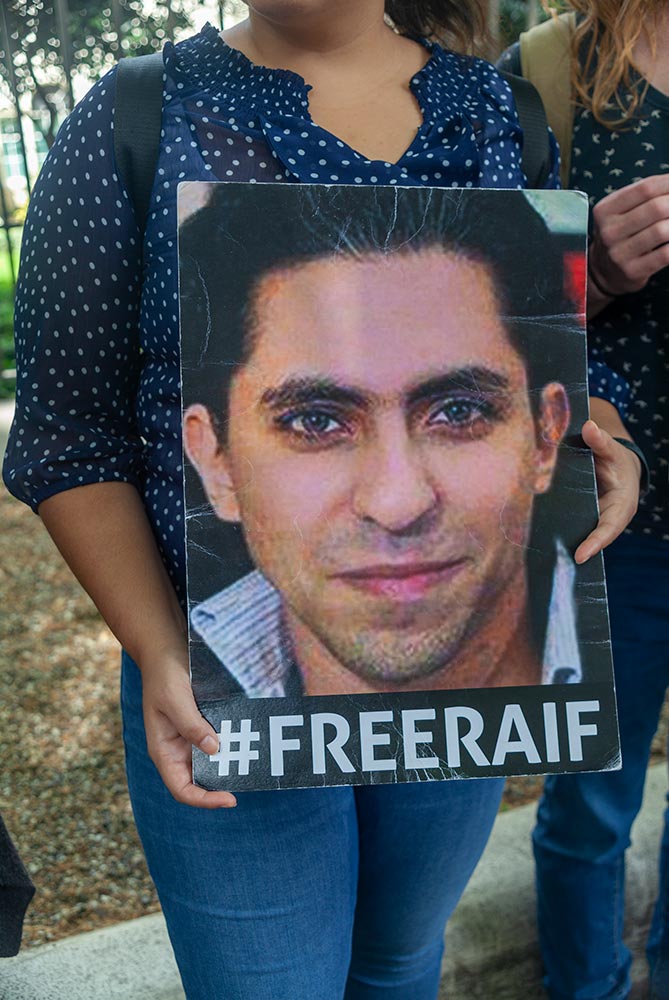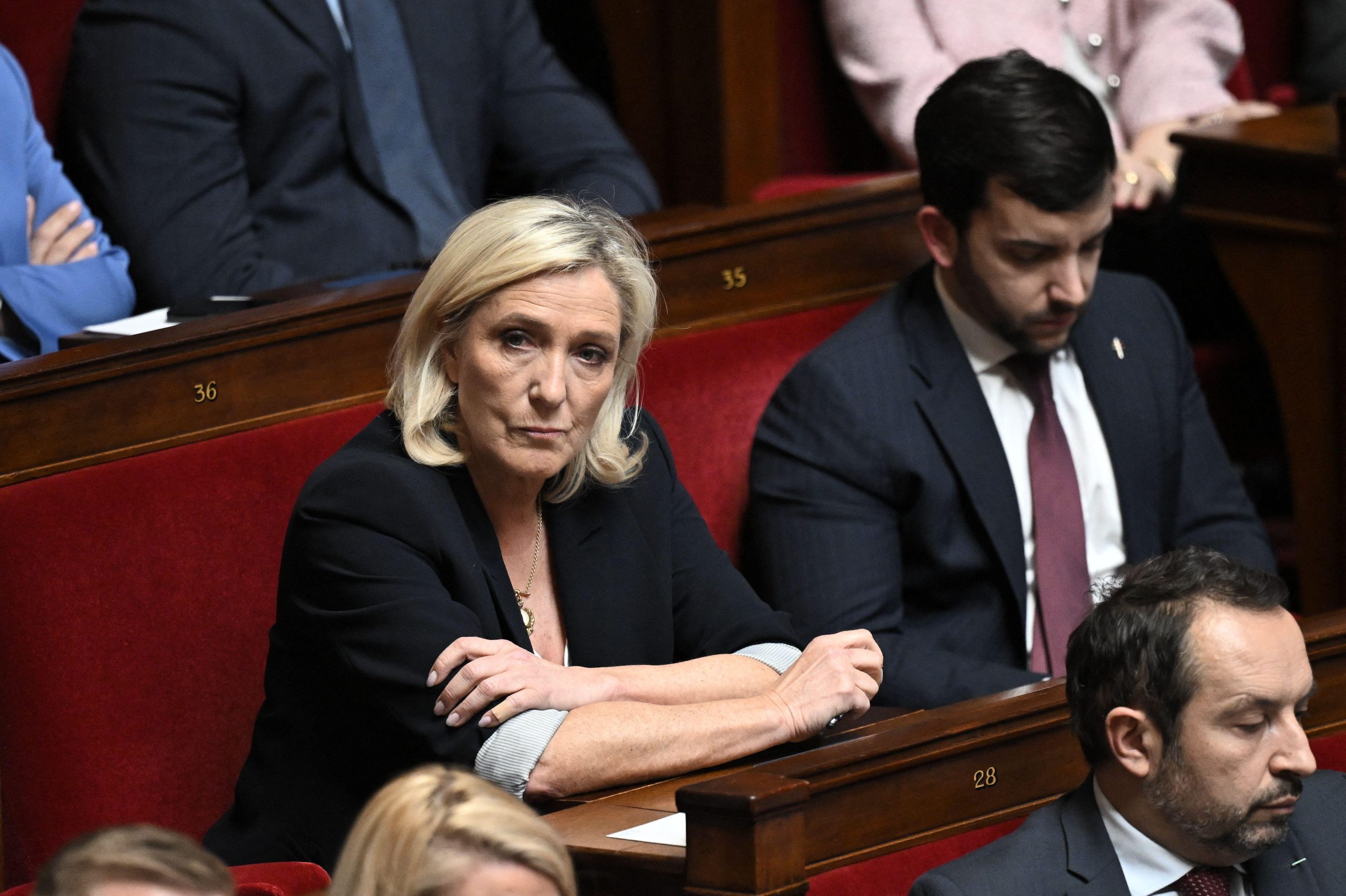[vc_row][vc_column][vc_single_image image=”107402″ img_size=”full” add_caption=”yes”][vc_column_text]On 17 June 2012, blogger Raif Badawi was arrested in Saudi Arabia for “criticising Islam through electronic means” and for apostasy (the abandonment of Islam by a Muslim). He was convicted and sentenced to seven years in prison and 600 lashes, which was later extended to 10 years and 1,000 lashes. Seven years later, his imprisonment continues to spark outrage around the world.
“I think it’s important to show to the Saudi Arabian government that we’re still highlighting these cases even though it’s been seven years since Raif’s imprisonment,” Perla Hinojosa, fellowships and advocacy officer at Index on Censorship said at the vigil held for Badawi outside the Saudi embassy on Monday 17 June.
Badawi started one of the only fora on which Saudi Arabians could communicate freely, especially about issues related to secularism, atheism and liberalism. Though he never formally denounced the Saudi government, his website, Saudi Liberal Network, eventually caught the government’s attention for his posts questioning the country’s adoption of Sharia Law and theocracy. After his arrest, the website was shuttered by the Saudi government. On 30 July 2013, Badawi was convicted, and one and a half years later, on 9 January 2015, he received the first 50 of his lashes.
“In particular it was the lashes that drew widespread international condemnation to what has happened….it does take something particularly horrific to mobilise that kind of action,” said Rebecca Vincent, UK bureau director for Reporters Without Borders. Badawi’s case highlights the Saudi government’s media suppression and harsh corporal punishment.
Badawi’s health declined after his first 50 lashes. The remaining 950 were indefinitely postponed and remains incarcerated. His wife, Ensaf Haidar, and their three children escaped to Canada shortly before his arrest, where they advocate for his release and have legal status as refugees. Badawi faces a 10-year travel ban after his release from prison, though he hopes to one day rejoin his family.
Though Badawi is the face of the struggle for free press in Saudi Arabia, he is far from the only one to be targeted. His website lists four others who have been targeted by the governments of Saudi Arabia or Bahrain for speaking out against government abuses, and there are reports of countless others who have received violent or even capital sentences for offenses as benign as tweeting about atheism. Cat Lucas, programme director of the Writers at Risk Programme at English PEN, explained that “being able to use him to highlight other cases is very helpful.”
Though drawing attention to the issues through personal stories like Badawi’s is important, there has been minimal progress in securing his release. “Even though it was initially condemned internationally we’ve not really seen anything happen as a consequence,” says Vincent. Crown Prince Mohammed bin Salman of Saudi Arabia has made changes in certain areas, like granting women the right to drive, however the small improvements have not extended to media freedom, Lucas noted. Vincent said that though the Crown Prince’s policies may have initially inspired hope in many Saudis, “when you look at… [policies like] the right of women to drive, many of the activists who campaigned for that are behind bars themselves.”
Lucas said that though–after seven years of protesting for Badawi’s release–the fight for media freedom in Saudi Arabia might seem like an uphill battle, it is important not to lose hope. “It’s the role of organisations like English PEN and Index on Censorship to keep up the pressure on governments including our own, even when it’s many years after the initial arrest or detention of one of our colleagues around the world,” she said.[/vc_column_text][vc_basic_grid post_type=”post” max_items=”4″ element_width=”6″ grid_id=”vc_gid:1560855350907-6af08b0a-d8a9-4″][/vc_column][/vc_row]





